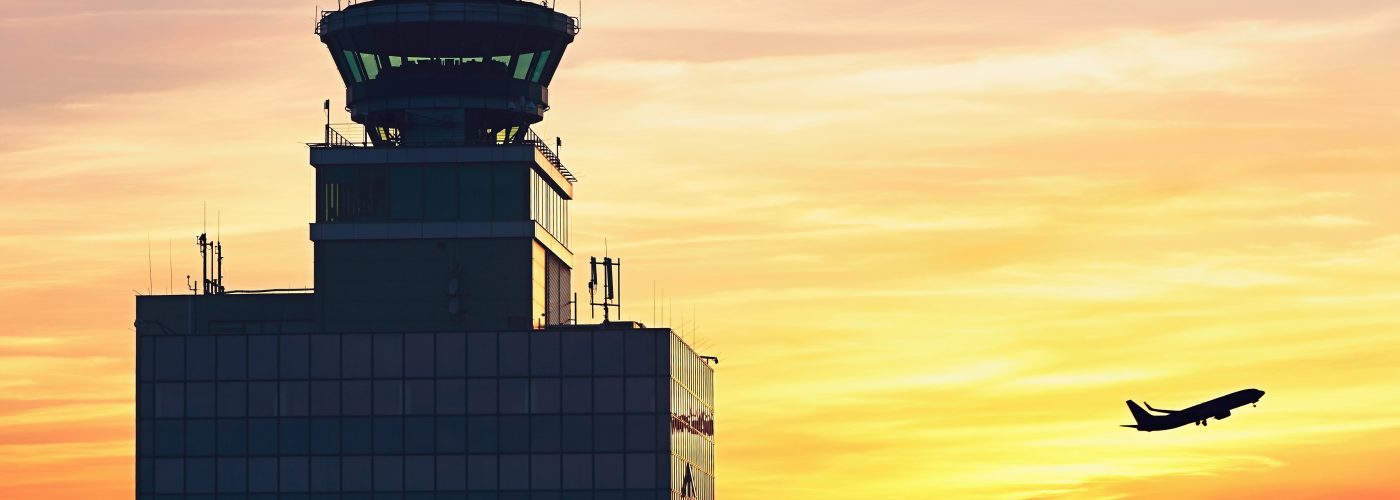On the 35th day of the U.S. partial government shutdown, the Federal Aviation Administration (FAA) announced a staff shortage in air traffic controllers and that flights to at least one airport were halted, causing delays. Flights through La Guardia, Newark, and Philadelphia airports were the first to be affected, around the same time that the FAA announced the sick outs.
“We have experienced a slight increase in sick leave at two facilities,” the FAA said in a tweet. “We are mitigating the impact by augmenting staffing, rerouting traffic, and increasing spacing between aircraft when needed.”
Flights were temporarily stopped at La Guardia before resuming, according to NBC News, but travel delays are expected continue as the FAA makes changes to air traffic control efforts. “The public can monitor air traffic at fly.faa.gov and they should check with airlines for more information,” the FAA said.
The first sign of shutdown-induced air traffic control issues came after TSA worker shortages caused security delays, and served as a turning point as federal employees worked without pay. Air traffic control delays mark a big change in how much a government shutdown affects ordinary travelers.
Your Rights During Government Shutdown Air Traffic Control Delays
While flyers are ordinarily entitled to compensation as part of their government mandated air passenger rights (see our Air Passenger Rights Guide for details) when a lengthy delay or cancellation occurs, experts say air traffic control staffing shortages constitute “extraordinary circumstances,” under which you might not be entitled to any refund.
That’s according to AirHelp, the online service that files compensation claims on behalf of air passengers when their flights are canceled or significantly delayed.
“Traditionally, passengers on flights eligible under EC 261—which includes flights departing from the EU and flights to the EU on EU airlines—would be eligible for compensation of up to $700 due to lengthy delays or cancellations,” Henrik Zillmer, CEO of AirHelp says.
“However, because EC 261 does not cover disruptions caused by extraordinary circumstances, such as concerns over security, adverse weather conditions, and more, passengers are not eligible to claim compensation from the airline, if the disruption was caused by factors that fall into this category.”
Under normal circumstances the airline has a responsibility to make sure flights run smoothly and, if they don’t, to compensate flyers significantly affected by cancellations or long delays. But the safety need for air traffic control to delay flights is not considered a “normal” circumstance.
“In the case of the shutdown, the shortage has been caused by a political decision beyond the airline’s control so they are not obligated to pay out compensation,” Zillmer said. “These flights are being canceled and halted in order to protect travelers’ safety, as shortages in air traffic controllers and other FAA employees can put travelers’ safety in jeopardy.”
If that sounds bad, it’s because it is. Unions representing pilots and flight attendants issued warnings over safety concerns as sick-outs increased.
During the delays caused by air traffic control, however, I personally know of at least one person who just this morning brandished SmarterTravel’s mobile-friendly Air Passenger Rights guide to an airline agent and received a full refund—so it’s still worth asking if your flight has been canceled. Normal rights in a cancellation or lengthy delay are as follows:
“Your rights during interrupted travel vary by airline:
- If you decide not to complete the trip, all airlines must refund the remaining value of your ticket, even if it’s a non-refundable ticket.
- If you want to complete the trip, all airlines promise you the next available seat to your destination on their own next flight. If the next available seat is a day or more later, Air Canada accommodates return dates changes to provide your original length of stay; other lines may offer this option but they don’t cover it in their documentation.
- American, Delta, Sun Country, United, Virgin America, and WestJet may transfer you to another line, at their sole discretion.
- Air Canada, Alaska, Hawaiian, and WestJet will transfer you at your request.
- If your connecting flight on the outbound portion of a round-trip is canceled at the connecting point and you no longer want/need to travel onward, Air Canada, Alaska, and WestJet will, at your option, return you to your origin point at no cost and refund the full value of your ticket.”
Advocating for yourself is the best thing you can do short of avoiding flying all together until a shutdown is over—which for many, isn’t an option. Readers: Have you been affected by TSA or air traffic control delays during the shutdown? Comment below.
More from SmarterTravel:
- 10 Travel Safety Tips from the CIA
- 7 Air Travel Secrets You Didn’t Know
- Not Just Liquids: TSA Adds New Rule for Carry-ons That Will Change How You Pack
SmarterTravel’s Shannon McMahon is a former news reporter who writes about all things travel. Follow her on Twitter and Instagram.
We hand-pick everything we recommend and select items through testing and reviews. Some products are sent to us free of charge with no incentive to offer a favorable review. We offer our unbiased opinions and do not accept compensation to review products. All items are in stock and prices are accurate at the time of publication. If you buy something through our links, we may earn a commission.
Related
Top Fares From
Today's Top Travel Deals
Brought to you by ShermansTravel
France: 8-Night Paris, Avignon & Nice...
Infinity Worldwide Vacations
 vacation
$2880+
vacation
$2880+
Poconos: 3 Nts in Garden of...
ResortsAndLodges.com
 hotel
$305+
hotel
$305+
7-Nt Canada & New England Cruise,...
Princess Cruises
 cruise
$839+
cruise
$839+




